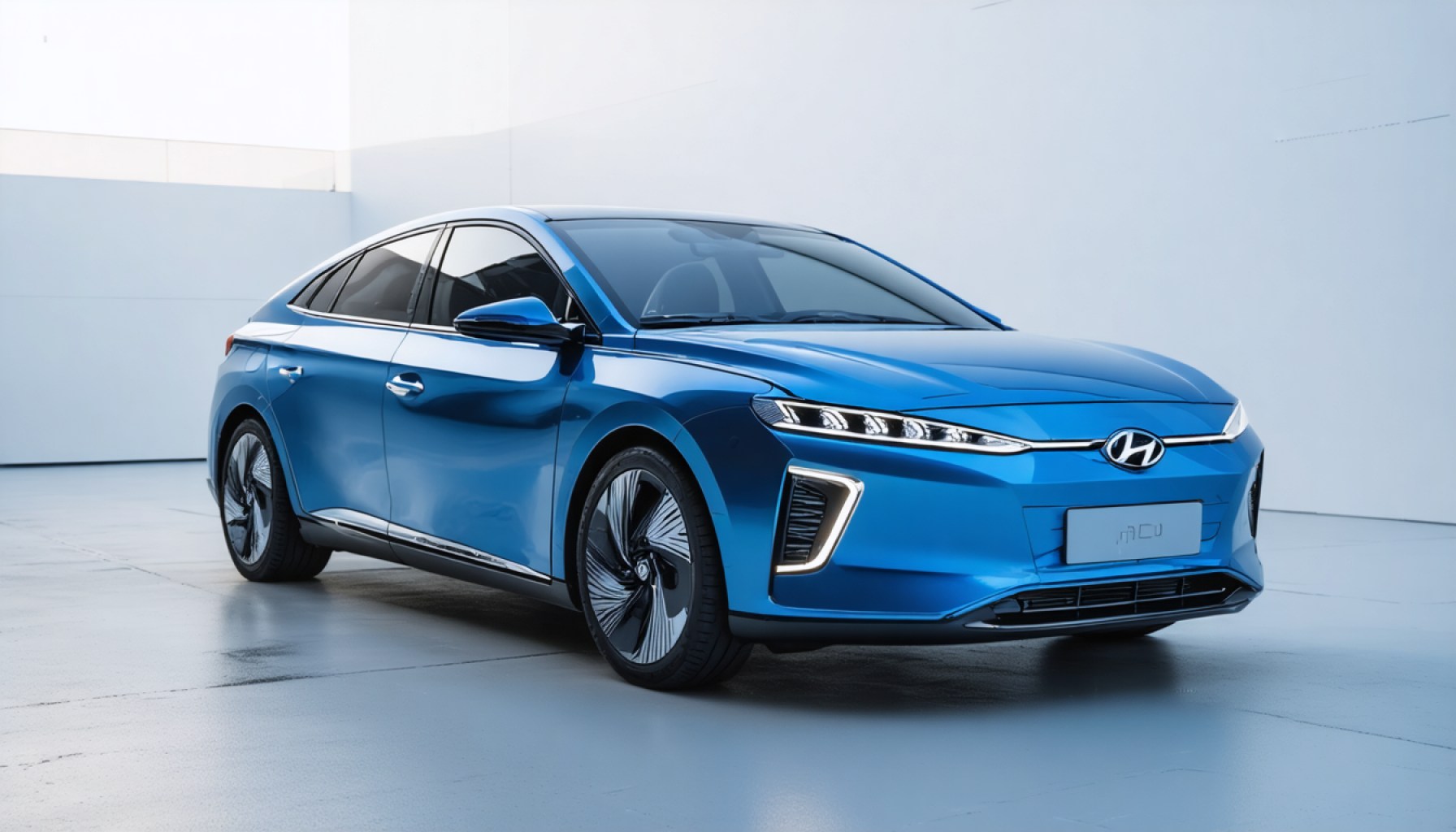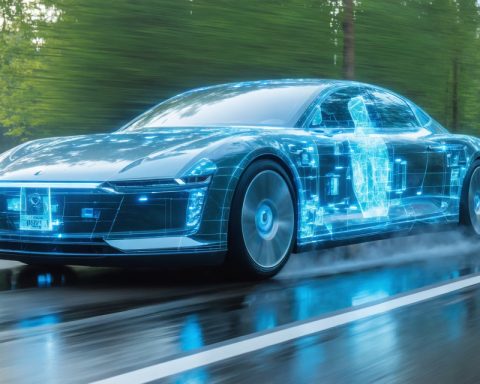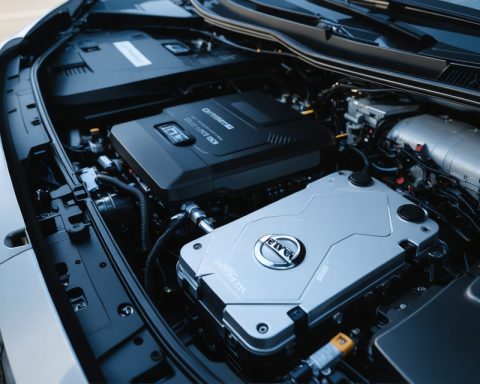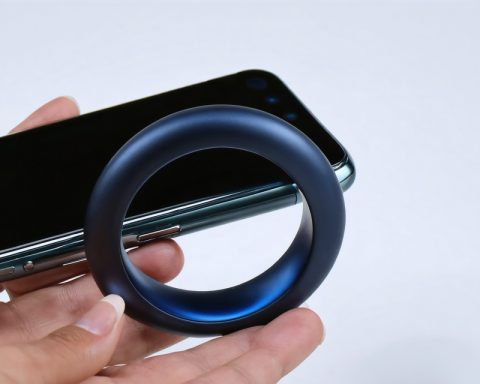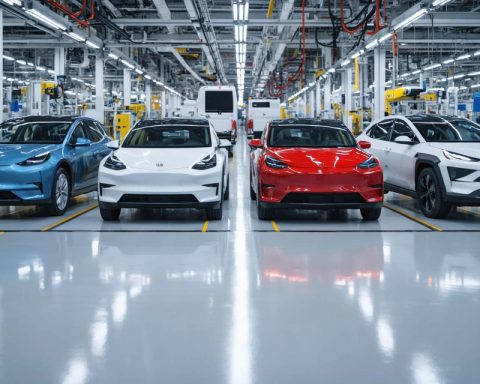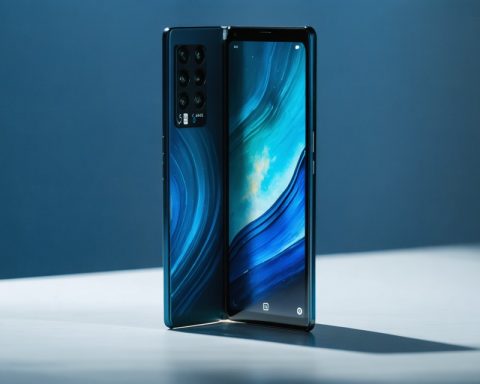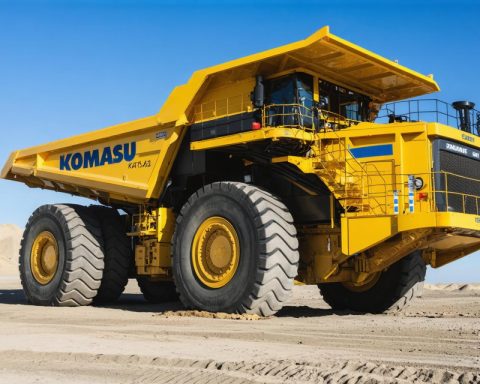- Hyundai is gearing up to introduce a new electric SUV, potentially named the IONIQ 4, in China’s competitive EV market.
- The automaker has established the Hyundai Motor China Advanced Tech and R&D Center to align with local technology and consumer preferences.
- Hyundai’s strategy involves leveraging local talent and innovation to create vehicles tailored to Chinese consumers.
- The upcoming SUV features a sleek, modern design with a distinctive full-length light bar, promising agility and futuristic aesthetics.
- Speculation around the SUV’s name suggests it will join the IONIQ lineup, symbolizing Hyundai’s expansion in the EV sector.
- The unveiling of the SUV later this year will reveal whether Hyundai’s approach can make a significant impact in the world’s largest EV market.
Clouds gather over China’s bustling automotive landscape as it braces for another surge in electric vehicle competition. Far from retreating amidst this storm, Hyundai charges forward, spearheading a new path with its upcoming electric SUV potentially named the IONIQ 4. This bold maneuver is painted against the backdrop of a fiercely competitive market teeming with domestic champions like BYD.
Last year, Hyundai took an audacious step by inaugurating the Hyundai Motor China Advanced Tech and R&D Center in China—a decision underscoring their commitment to seamlessly blend with the local ecosystem. From this nerve center of innovation, Hyundai envisions crafting vehicles that resonate with Chinese consumers, leveraging local technology and talent.
The strategic intent is unmistakable. Where some might see insurmountable challenges, Hyundai sees opportunity. This new electric SUV, with its sleek, modern silhouette and distinctive full-length light bar, is a testament to Hyundai’s resolve. Spy photos reveal a tastefully designed vehicle that marries futuristic aesthetics with practical elegance. Smaller and more agile in design than its predecessor, the IONIQ 9, the new model carries a promise of nimbleness—a striking embodiment of Hyundai’s adaptability.
Onlookers speculate about the SUV’s nomenclature, with the internal moniker “OE” fueling speculation that it will join the ranks of the IONIQ family. The numbers may be speculative, but one crucial element is crystal clear: this vehicle is an unapologetic signal of Hyundai’s relentless ambition.
As the year unfolds, anticipation grows. Will Hyundai’s electric marvel challenge the status quo and carve a niche in the world’s largest EV market? The unveiling later this year might just provide the answer. With the possibility of the IONIQ 4 making its public debut, the name Hyundai might soon resonate deeply within China, capturing the hearts of consumers yearning for innovation wrapped in local familiarity.
In an industry propelled by innovation and fierceness, Hyundai’s latest endeavor can inspire existing players to rethink and reimagine. As observers and potential buyers await further details, one thing is certain: Hyundai’s upcoming revelation is poised not just to drive on roads but to drive possibilities.
Hyundai’s New Electric SUV: Can the IONIQ 4 Shake Up China’s EV Market?
Overview of Hyundai’s Strategy in the Chinese EV Market
As Hyundai gears up for the expected release of the IONIQ 4, the automaker is making a substantial bet on the Chinese electric vehicle (EV) market, the largest in the world. This move comes amid intense competition from domestic giants like BYD and international players. With the establishment of the Hyundai Motor China Advanced Tech and R&D Center, Hyundai aims to leverage local technologies and expertise to adapt its vehicles to the preferences of Chinese consumers.
Key Features of the IONIQ 4 Electric SUV
– Design and Aesthetics: The IONIQ 4 is expected to feature a sleek modern design with a distinctive full-length light bar, offering a blend of futuristic appeal and practical elegance.
– Size and Agility: Slightly smaller and more agile than its predecessor, the IONIQ 9, this model promises nimbleness, potentially improving urban maneuverability—a key selling point in crowded Chinese cities.
– Technological Innovations: Although specific tech details are under wraps, it’s anticipated that the SUV will include cutting-edge features such as advanced safety technologies, state-of-the-art infotainment systems, and possibly Hyundai’s latest electric drivetrain advancements.
Pressing Questions and Speculations
1. Will the IONIQ 4 Compete on Price?
Hyundai will likely set a competitive price to capture market share amid fierce competition. Considering China’s preference for value-for-money vehicles, the pricing strategy will be crucial.
2. What Are the Potential Market Challenges?
Hyundai faces the challenge of local consumer loyalty toward established domestic brands like BYD, NIO, and Xpeng. They must highlight IONIQ 4’s unique features and Hyundai’s commitment to quality to stand out.
3. How Will the SUV Perform in Real World Conditions?
Performance metrics like range, battery efficiency, and charging time will be critical. As Hyundai continues to innovate, it must ensure that the SUV meets the high expectations of range and durability that Chinese consumers have.
Market Forecasts and Industry Trends
The Chinese EV market is projected to grow significantly, with an expected increase in sales as the Government continues to push for greener transportation solutions. Hyundai’s emphasis on locally-inspired designs can enhance its competitive edge. Analysts believe the EV market in China will surpass sales of 10 million units annually by 2030, presenting vast opportunities for brands like Hyundai.
Recommendations for Hyundai and Potential Buyers
– For Hyundai: Continue collaborating with local tech firms to enhance vehicle appeal and functionality. Offering competitive leasing or financing options could increase consumer accessibility.
– For Potential Buyers: Keep an eye on Hyundai’s announcements for introductory offers or packages, which often accompany new model launches.
Conclusion
Hyundai’s introduction of the IONIQ 4 SUV into the Chinese market highlights its commitment to innovation amid a fiercely competitive landscape. With this move, Hyundai not only aims to solidify its presence in China but also to redefine consumer expectations with its blend of performance and style. As anticipation builds, the IONIQ 4 could represent a pivotal moment for Hyundai in the global EV market.
For more details about Hyundai’s initiatives, visit the official Hyundai website.
